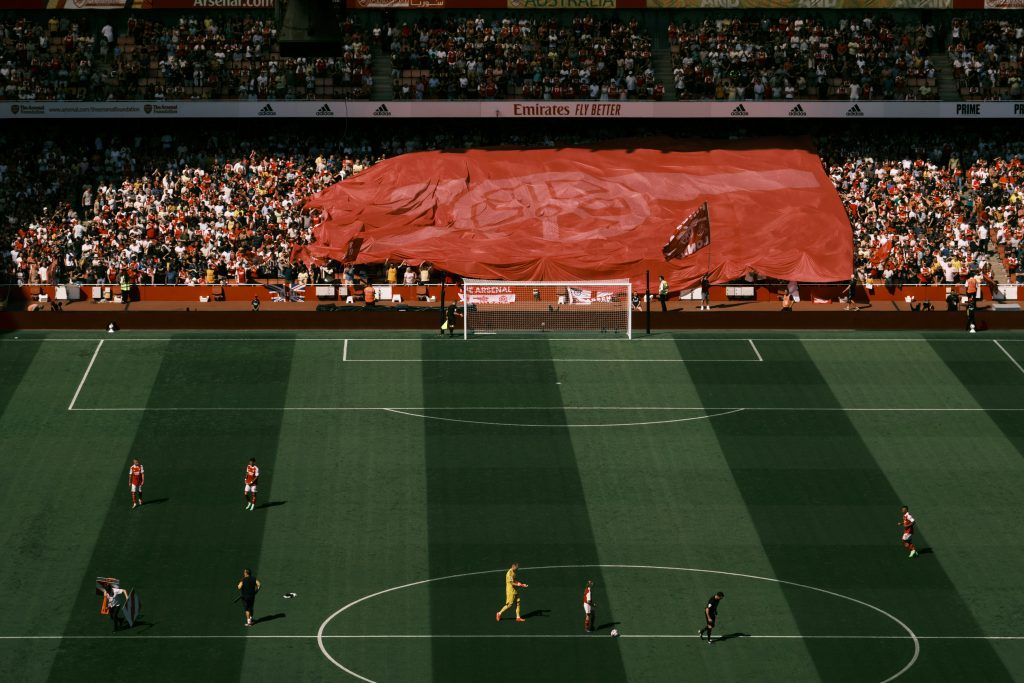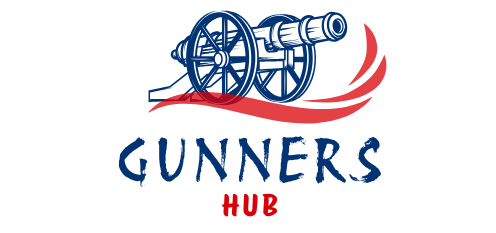Wolves vs Arsenal Match Coverage & Key Takeaways
Welcome to our Wolves vs Arsenal Match Coverage, where we break down every key moment, tactical nuance, and standout performance from this highly anticipated Premier League clash. Arsenal, eager to solidify their position at the top end of the table, faced a resilient Wolves side at Molineux. With both teams having plenty to prove, this encounter promised to deliver a thrilling mix of high-stakes football and tactical battles. Could the Gunners continue their fine form, or would Wolves spring a surprise? Let’s dive into the action-packed match and its implications for Arsenal’s season.

Pre-Match Build-Up
Team News:
- Arsenal:
- Captain Martin Ødegaard and midfielder Mikel Merino were absent due to illness.
- William Saliba returned to the starting lineup after recovering from a minor hamstring injury.
- Young talents Ethan Nwaneri and Myles Lewis-Skelly were given starting roles, highlighting Mikel Arteta’s trust in the club’s youth.
- Wolves:
- Key striker Jørgen Strand Larsen was side-lined due to injury in the 32nd minute, impacting Wolves’ attacking options.
- Midfielder João Gomes started but was walking a disciplinary tightrope, having accumulated several bookings in previous matches.
Tactical Preview:
- Arsenal’s Approach:
- Arteta set up the team in a 4-3-3 formation, aiming for a possession-based game to control the midfield.
- With the inclusion of Nwaneri and Lewis-Skelly, there was an emphasis on youthful energy and creativity to break down Wolves’ defense.
- Wolves’ Strategy:
- Manager Vítor Pereira opted for a 3-4-3 formation, focusing on a solid defensive structure with quick transitions to exploit spaces behind Arsenal’s advancing full-backs.
- The absence of Larsen meant relying on Matheus Cunha and Hwang Hee-chan to spearhead counter-attacks.
The stage was set for an intriguing battle, with Arsenal looking to maintain pressure on league leaders Liverpool, and Wolves eager to distance themselves from the relegation zone.
Match Highlights

Wolverhampton Wanderers 0-1 Arsenal FC

First Half:
- Early Exchanges:
- Both teams started cautiously, with possession evenly shared.
- Wolves’ Pablo Sarabia had a notable chance, receiving a well-placed pass from Nélson Semedo, but his shot missed the target.
- Arsenal’s Opportunities:
- Kai Havertz was at the center of Arsenal’s attacking efforts, narrowly missing with a header from a Leandro Trossard cross.
- Shortly after, Havertz forced Wolves’ goalkeeper José Sá into a save with a close-range effort.
- Controversial Red Card:
- Just before halftime, Arsenal’s Myles Lewis-Skelly was shown a straight red card for a foul on Matt Doherty. The decision was met with disbelief from players and fans alike, with many arguing it warranted only a yellow.
Second Half:
- Arsenal’s Resilience:
- Despite being reduced to ten men, Arsenal began the second half assertively.
- Declan Rice tested Sá with a powerful shot, which was tipped over the bar.
- Wolves’ Response:
- Matheus Cunha came close twice: first with a long-range effort that David Raya saved, and then narrowly missing from a corner.
- Equalizing the Numbers:
- In the 70th minute, Wolves’ João Gomes received a second yellow card for a foul on Jurriën Timber, leveling the playing field.
- Decisive Moment:
- Four minutes after Gomes’ dismissal, Gabriel Martinelli delivered a cross that deflected off Semedo, landing at the feet of substitute Riccardo Calafiori. Calafiori seized the opportunity, scoring with a precise finish into the bottom corner.
- Late Drama:
- Rayan Aït-Nouri had a golden chance to equalize, breaking through Arsenal’s defense, but Raya’s crucial save preserved the Gunners’ lead.
Arsenal’s determination and tactical discipline were evident as they secured a vital 1-0 victory at Molineux, keeping their title aspirations alive.
Player Ratings
Arsenal
- David Raya (8.4): Produced several key saves, including a crucial late stop to deny Aït-Nouri. Commanded his area with authority.
- Jurrien Timber (7.6): Solid defensively and contributed well to build-up play. Played a key role in keeping Wolves at bay.
- William Saliba (7.6): Calm and composed under pressure. Excellent in aerial duels and distribution.
- Gabriel Magalhães (7.5): Strong defensive presence, effectively dealing with Wolves’ aerial threats.
- Myles Lewis-Skelly (6.2): Struggled to make an impact before being controversially sent off in the first half.
- Ethan Nwaneri (6.1): A quiet performance from the youngster; found it tough to influence the game against Wolves’ midfield.
- Thomas Partey (7.6): Played a pivotal role in maintaining Arsenal’s structure after going down to ten men.
- Declan Rice (7.6): Instrumental in both defensive and attacking transitions. Almost scored with a thunderous strike.
- Gabriel Martinelli (6.5): Lively on the flank but lacked his usual sharpness in the final third.
- Kai Havertz (6.6): Worked hard and came close to scoring in the first half but faded as the game progressed.
- Leandro Trossard (6.9): Provided creativity and energy but couldn’t find the cutting edge.
- Riccardo Calafiori (7.3): Came off the bench to score the decisive goal with a composed finish.
- Kieran Tierney (NA): Late substitution with minimal time to make an impact.
Wolves
- José Sá (6.5): Made some solid saves but was unable to stop Calafiori’s winning strike.
- Emmanuel Agbadou (8.5): Outstanding defensive performance; blocked shots and made crucial interceptions.
- Hugo Bueno (6.6): Decent in defense but struggled to make a significant impact going forward.
- Matt Doherty (7.3): Worked tirelessly on the right flank and was a constant outlet in attack.
- Rayan Aït-Nouri (6.8): Showed glimpses of danger in attack but was denied by Raya late in the game.
- Nélson Semedo (6.6): Defensively solid but was unfortunate with the deflection leading to Arsenal’s goal.
- João Gomes (4.7): A disappointing outing, capped by a second yellow card that left his team vulnerable.
- Jean-Ricner Bellegarde (6.0): Worked hard but couldn’t influence the game from midfield.
- André (7.2): Combative in midfield, linked well with the attack at times.
- Matheus Cunha (6.8): Had a couple of chances but lacked the composure to convert them.
- Pablo Sarabia (6.1): Struggled to make an impact and missed a key opportunity in the first half.
- Jørgen Strand Larsen (5.6): Anonymous for most of the game before being substituted.
- Hwang Hee-Chan (6.8): Added energy and movement but couldn’t find a breakthrough.
- Rodrigo Gomes (NA): Came on late with little time to influence the game.
- Tommy Doyle (NA): Late substitute; didn’t see much of the ball.
- Gonçalo Guedes (NA): Minimal involvement after coming on late.
These ratings reflect the standout performances and struggles of both teams during a closely contested encounter.
Tactical Analysis
Arsenal’s Tactics
- Formation and Structure:
Arsenal started with a 4-3-3 formation, emphasizing control in midfield through Declan Rice and Thomas Partey. The inclusion of young talents like Myles Lewis-Skelly and Ethan Nwaneri added energy but lacked the experience to dominate the game consistently. - Defensive Resilience:
After Lewis-Skelly’s red card, Arsenal shifted to a more conservative shape, resembling a 4-4-1. They focused on compact defensive blocks and relied on counter-attacks for offensive opportunities. The backline, led by Gabriel and Saliba, remained disciplined and effectively dealt with Wolves’ aerial and physical threats. - Attack Through Width:
Arsenal sought to exploit Wolves’ flanks through Martinelli and Trossard. However, their effectiveness was limited by Wolves’ defensive discipline, and Arsenal’s best chances came from set-pieces and quick transitions. - Key Substitution:
The introduction of Riccardo Calafiori proved decisive. His ability to find space and finish clinically in the box highlighted Arsenal’s depth and Arteta’s tactical flexibility.
Wolves’ Tactics
- Formation and Approach:
Wolves lined up in a 3-4-3, aiming to exploit Arsenal’s high defensive line through quick transitions and counter-attacks. They prioritized defensive solidity with Agbadou excelling at breaking up Arsenal’s attacking moves. - Pressing Strategy:
Wolves employed a medium press, focusing on disrupting Arsenal’s build-up play in central areas. João Gomes and André were tasked with winning second balls in midfield, which was effective until Gomes’ dismissal. - Wing Play:
Both Semedo and Aït-Nouri were tasked with providing width and overlapping runs. While Aït-Nouri created a few promising opportunities, the lack of a clinical finisher in the box limited Wolves’ attacking threat. - Defensive Block:
After going down to ten men, Wolves transitioned into a compact 5-3-1 formation, prioritizing damage control. However, they failed to mark Calafiori effectively during Arsenal’s goal-scoring move.
Key Tactical Battles
- Midfield Battle:
Arsenal’s Partey and Rice controlled the midfield when it was 11 vs. 11, but Wolves disrupted this rhythm with aggressive pressing. The red card to Lewis-Skelly shifted the balance momentarily, but Wolves’ midfield faded after Gomes’ sending-off. - Wolves’ Counter-Attacks:
Wolves attempted to exploit spaces behind Arsenal’s full-backs but were met with a disciplined defensive line, particularly Saliba’s aerial dominance and Timber’s recovery speed. - Set-Pieces:
Both teams relied on set-pieces for creating chances. Arsenal capitalized on second balls, with Calafiori’s goal originating from a deflected cross in a broken-play situation.
Takeaways
- Arsenal:
Arteta’s side showcased their tactical adaptability and mental resilience, overcoming numerical disadvantage to grind out a vital win. The ability to adapt to game circumstances will be crucial in their title challenge. - Wolves:
While Wolves were tactically sound for much of the game, their inability to convert chances and maintain discipline in critical moments proved costly. Manager Vítor Pereira will need to address these issues as Wolves aim to pull away from the relegation battle.
Post-Match Reactions

Manager’s Thoughts:
Mikel Arteta (Arsenal Manager):
Arteta expressed his pride in the team’s resilience, stating:
“I’m extremely proud of the players. You can talk about courage, you can talk about spirit, but as well about intelligence. The way they managed emotionally the game, it was unbelievable.”
Regarding the red card incident involving Myles Lewis-Skelly, Arteta was visibly upset but chose his words carefully:
“I am absolutely fuming but I leave it with you – because it is that obvious. I don’t think my words are going to help.”
Vítor Pereira (Wolves Manager):
Pereira lamented missed opportunities and acknowledged the challenge posed by Arsenal:
“We lost a big chance to win. We had our opportunities but didn’t take them. Arsenal is a strong team, and even with ten men, they showed their quality.”
Player’s Perspective:
Riccardo Calafiori (Arsenal Defender and Goal Scorer):
Reflecting on his match-winning goal and the team’s performance, Calafiori said:
“It was a tough game, especially after going down to ten men. But we showed character and determination. I’m happy to have contributed to the team’s victory.”
Fan Reactions:
The red card issued to Myles Lewis-Skelly sparked widespread outrage among fans. Many deemed the decision excessively harsh, arguing that a yellow card would have sufficed for the trip on Matt Doherty. The incident led to heated discussions on social media platforms, with supporters from various clubs, including rival fans, expressing disbelief over the call. The consensus was that the officiating was inconsistent, and the use of VAR in this instance failed to correct an obvious error.
Media Highlights:
The controversial red card drew significant attention from football pundits and former players:
- Ian Wright (Former Arsenal Striker):Wright criticized the decision, stating: “Anyone that has ever played the game knows it’s never a red. Yellow card, nobody says a word. Time and time again, this level of refereeing… the inconsistency, the excuses, the apologies.”
- Alan Shearer (Former England Striker):Shearer expressed his frustration with VAR and the officiating standards: “One of the worst decisions I’ve seen. VAR should get shut down if it can’t correct such obvious errors.”
- Mike Dean (Former Premier League Referee):Dean provided insight into the referee’s perspective: “I didn’t think it was a straight red, but I understand why the referee gave the decision. It’s a split-second call, and in real-time, it might have looked worse than it was.”
The incident has reignited debates about the consistency of officiating in the Premier League and the effectiveness of VAR in ensuring fair play as well as many fans questioning Michael Oliver‘s ability to officiate in the top division, looking back at many poor decisions from the ref.
Implications for Arsenal
1. Resilience Strengthens Title Credentials
- Arsenal’s ability to grind out a 1-0 victory despite being reduced to ten men for over half the match is a testament to their resilience and mental toughness. This performance showcased the team’s ability to handle adversity, a critical trait for any title-contending side.
- With this win, Arsenal remain firmly in the title race, keeping pressure on league leaders and demonstrating their capability to secure crucial points under challenging circumstances.
2. Squad Depth and Youth Development
- The inclusion of Myles Lewis-Skelly and Ethan Nwaneri in the starting lineup highlights Arsenal’s investment in youth. Despite mixed performances, such opportunities will aid their development and contribute to the squad’s depth as the season progresses.
- Riccardo Calafiori’s impactful substitution reinforces the value of squad rotation and depth, showcasing Arsenal’s ability to rely on bench players for decisive contributions.
3. Momentum Boost for Upcoming Fixtures
- Arsenal’s victory at Molineux not only secured three vital points but also serves as a morale booster for upcoming fixtures. The team will need to carry this momentum forward as they face a challenging run of games in both domestic and European competitions.
- Maintaining consistency in performance and results will be crucial as the season enters its decisive stages.
4. Officiating Concerns and Focus
- The controversial red card to Myles Lewis-Skelly has sparked widespread debate, adding to existing concerns about Premier League officiating. Arsenal will hope that such incidents do not repeat and affect their chances in key matches.
- The incident may also lead to increased scrutiny on referees in Arsenal’s future games, potentially influencing officiating standards during their matches.
5. Title Race Complexity
- With key rivals like Manchester City and Liverpool also securing victories, the margin for error remains slim for Arsenal. Every point will count in this tightly contested title race, making resilience and tactical discipline even more vital.
- Arsenal must capitalize on this victory by continuing to pick up points against both top and bottom-tier opposition, as slip-ups could be costly in the race for the Premier League crown.
Arsenal’s hard-fought win against Wolves highlights their determination and capability, but it also underscores the importance of maintaining focus and consistency in their pursuit of silverware this season.
What did you make of Arsenal’s gritty performance against Wolves? Do you think the red card was justified, or did VAR get it wrong again? Share your thoughts in the comments below.
